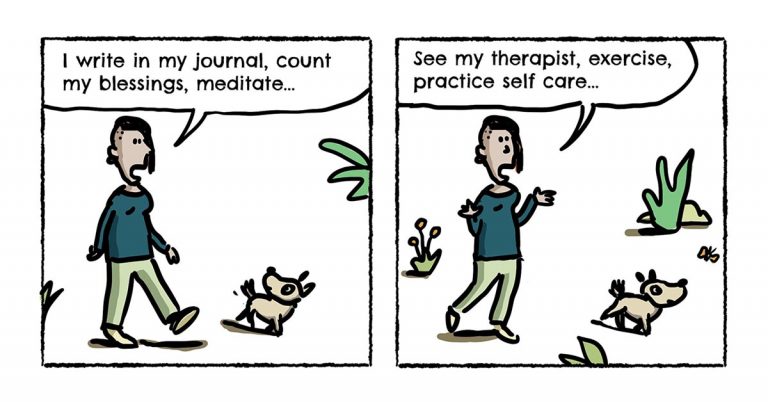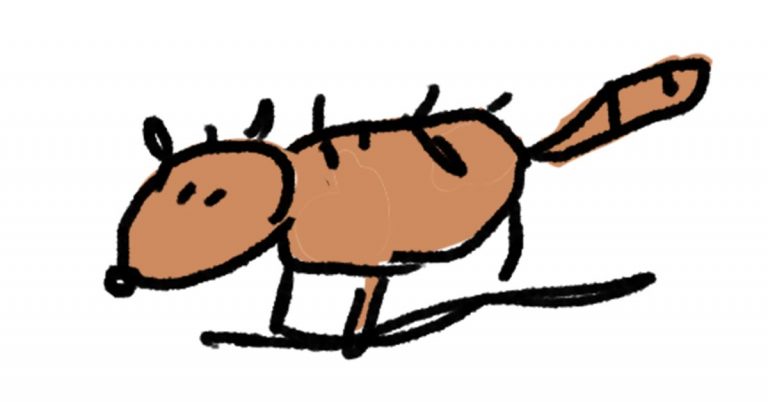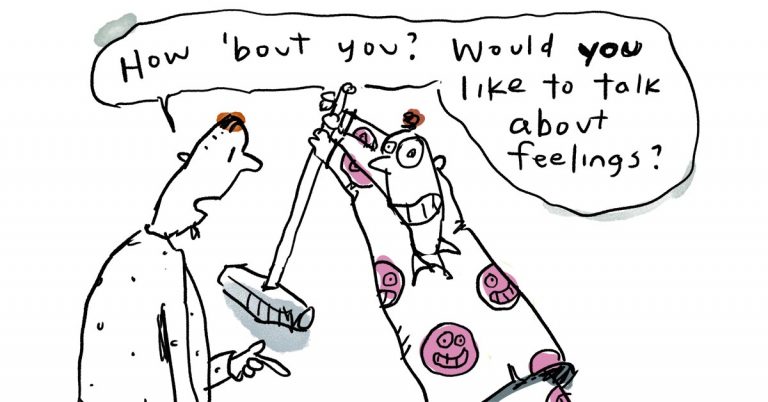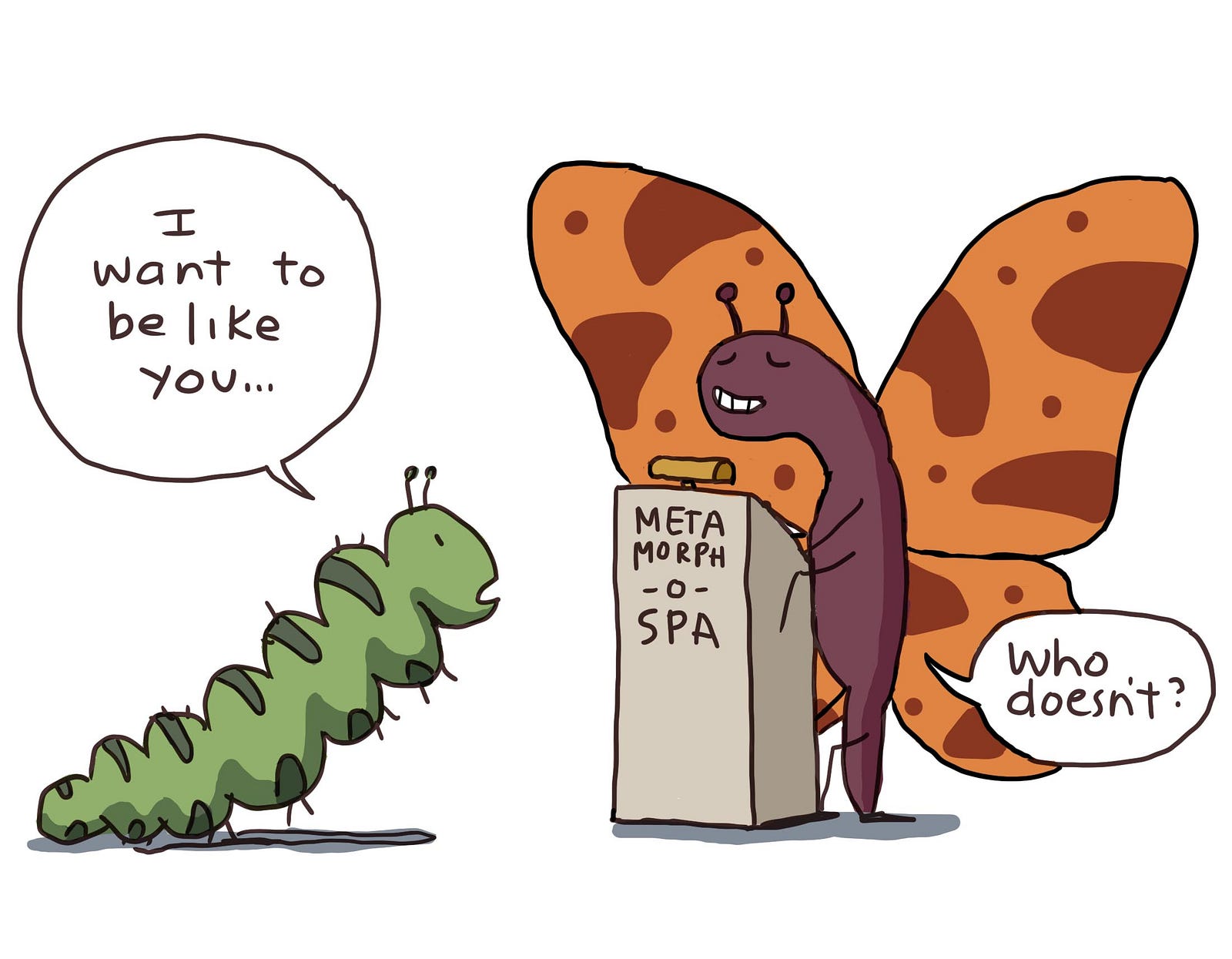
Everybody loves the idea of a caterpillar. The nearly rabid fervor over these unremarkable, oozing worms is not about who they are, of course, but who they will become. With just a two-week spa retreat and silk wrap, this plump and ordinary slug reemerges as a magnificent flying spectacle of extraordinary delight. It’s a metaphorically appealing metamorphosis.
If you don’t like bugs, as I don’t, and see them more as tiny monsters than as a fascination, as I do, there is the alternative transformation of the ugly ducking. Rejected by the pack, the ostracized swan is actually far more beautiful than any common duck could ever hope to be. When the elegant swan finally learns this, we can all relate to how perfect we truly are, even when we don’t think so. And, of course, what pathetic cretins our critics are.
There is no shortage of underdog turned hero stories. From the “ugly” girl who takes off her glasses to reveal that she is actually a supermodel, to scrawny kids undergoing actual physical transformations after being bitten by radioactive spiders, we are fascinated with personal metamorphoses. We love the idea that we can become more than we ever thought. And all we could ever hope to be.
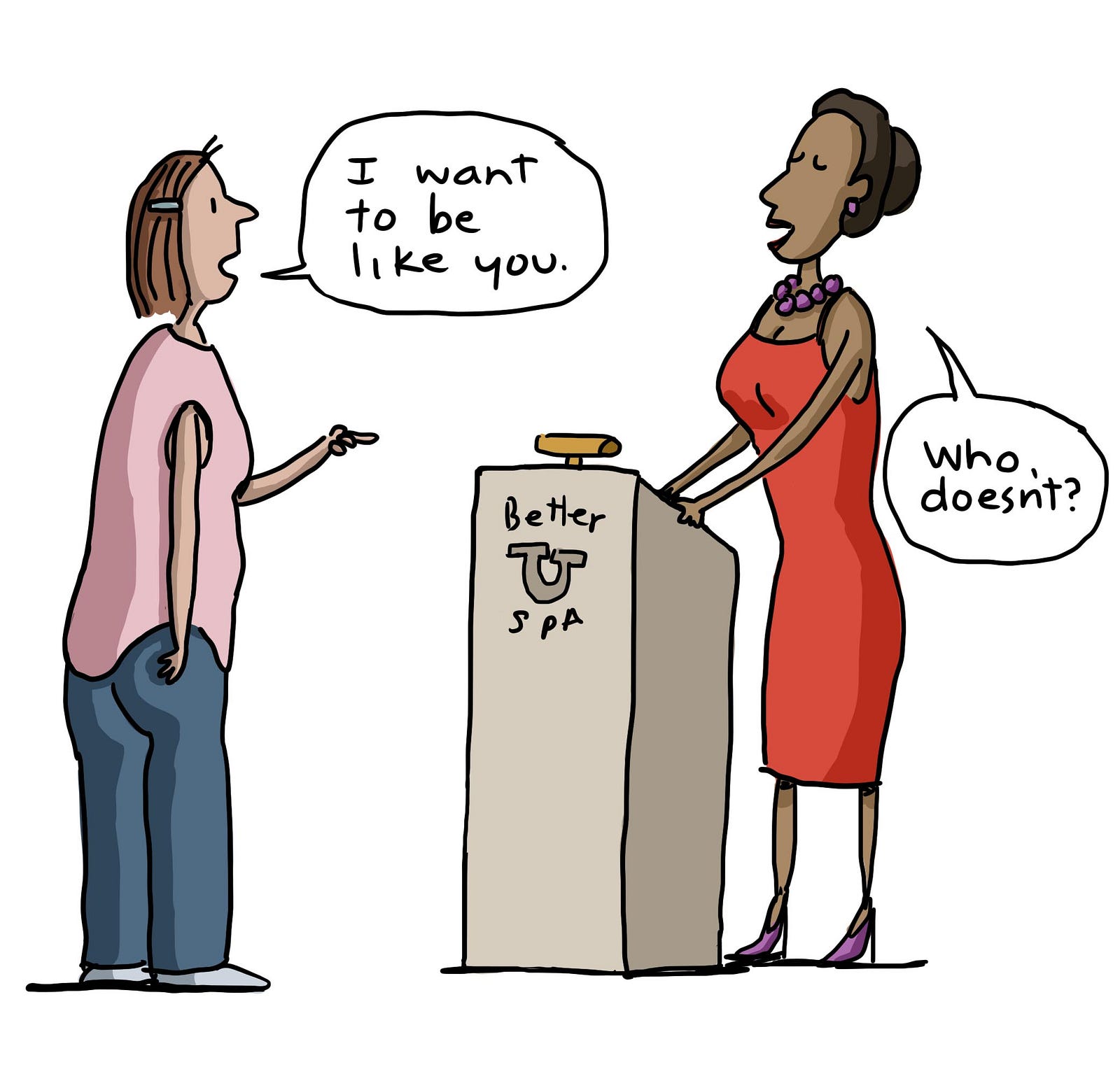
We go away on meditation retreats, vacations, spa weekends, and therapy intensives hoping to overcome all that isn’t yet right, so we can return anew to the appreciation and delight of ourselves and others. We move from one place to another with grand plans of reinventing ourselves, or take new jobs, find new soulmates, ingest new drugs, and court new gods, all to the same end.
I get it. I’m a lifelong work-in-progress myself. I’m not ok with the way I am, despite the constant flood of saccharine posters saying I’m already perfect. But am I? Really?
The ugly duckling was. They just didn’t know it. Maybe I’m like that. But the caterpillar did need to work on themself. Maybe that’s more me. Hmmm. What do I need to do in order to regroup and reenter the world as the splendid wonder that I secretly think I am? Something or nothing?
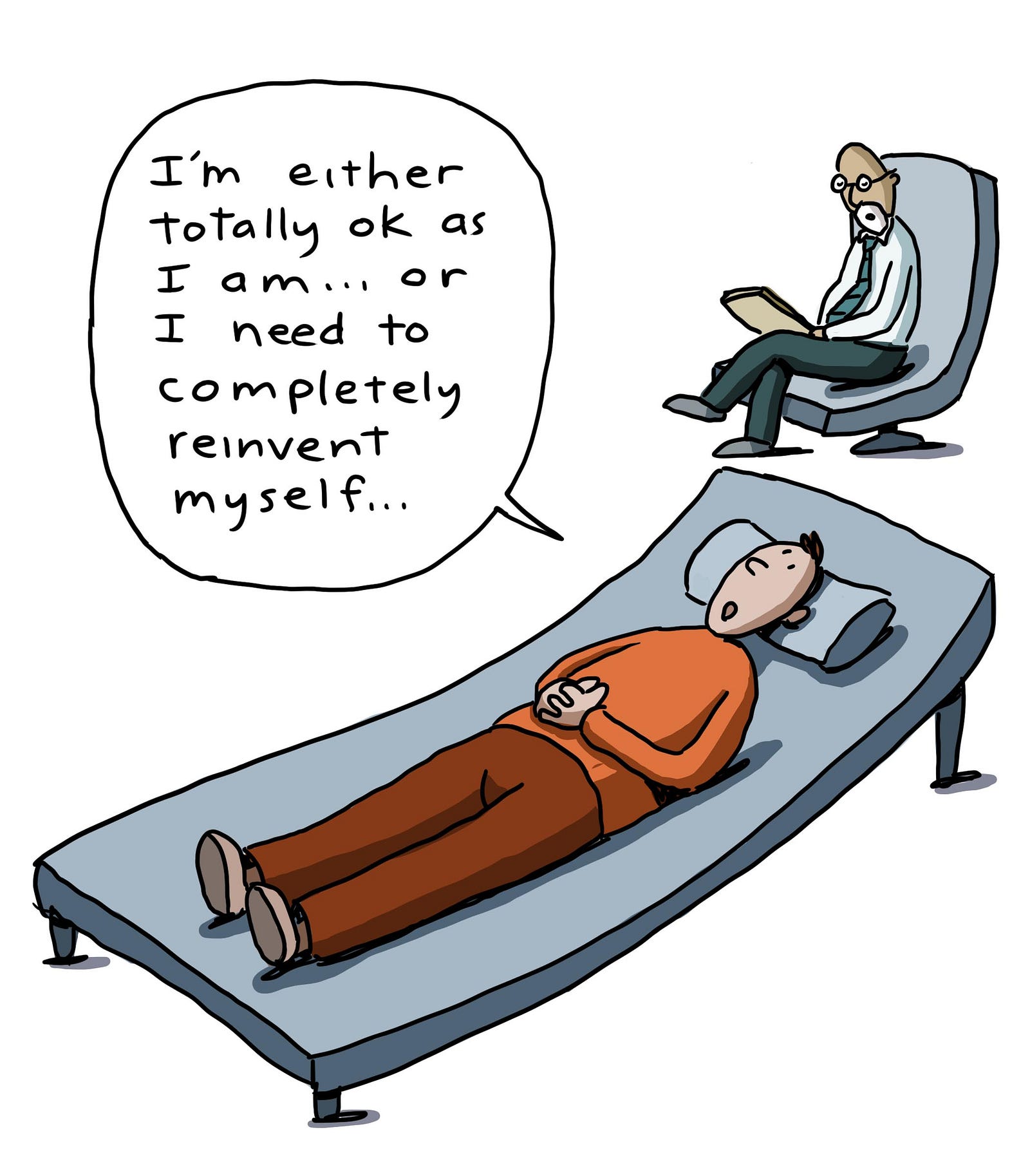
It is interesting that I see myself as both a splendid wonder and a work-in-progress. I know that “I am large and contain multitudes,” as I like to quote whenever I’m being a hypocrite. But which am I actually?
The namby-pamby answer is clearly both. I suspect that most of us secretly like ourselves. I mean, why wouldn’t we? We are the amalgamations of our own preferences and choices. What’s not to like about what we like?
Well, one thing is that we have little control over our emotions. As Jonathan Haidt points out, we are like riders on an elephant. Our conscious, directing minds are the riders, and our emotions are the elephant. We might tell the elephant not to eat a box of donuts, or curse out our boss, but our elephant often does whatever elephants want.
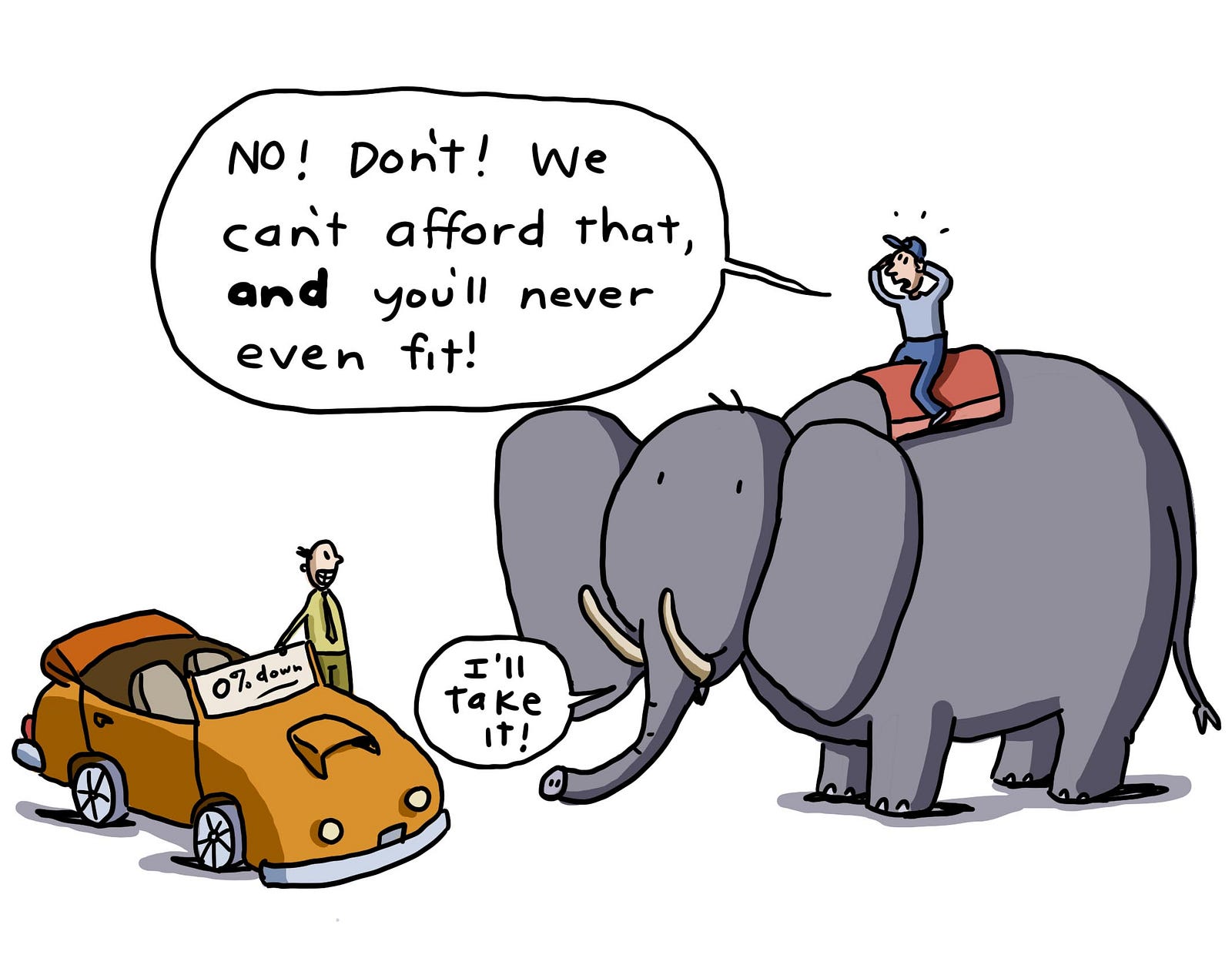
It’s certainly possible that we may not like some of our elephant ways. Perhaps we need a tweak here or a complete personality overhaul there. Maybe a couple of weeks at Emotional Regulation/Impulse Control Camp (ERICC)? Or twenty years of therapy to deal with the way our past traumas and rage keep coming up in our marriage? (Asking for a friend… ) The point is that there is usually room to improve.
While I clearly have no shortage of caterpillar alterations to address, most of my self-doubt feels more like the ugly duckling type. Or perhaps, the Van Gogh variety. I very much like what I’m doing, but most of the world seems to care less.
My bet is that this is what most of us are suffering. We feel pretty good with what we’re bringing to the table, but the rest of the world hardly notices that we’re in the room. So we naturally start to doubt ourselves.
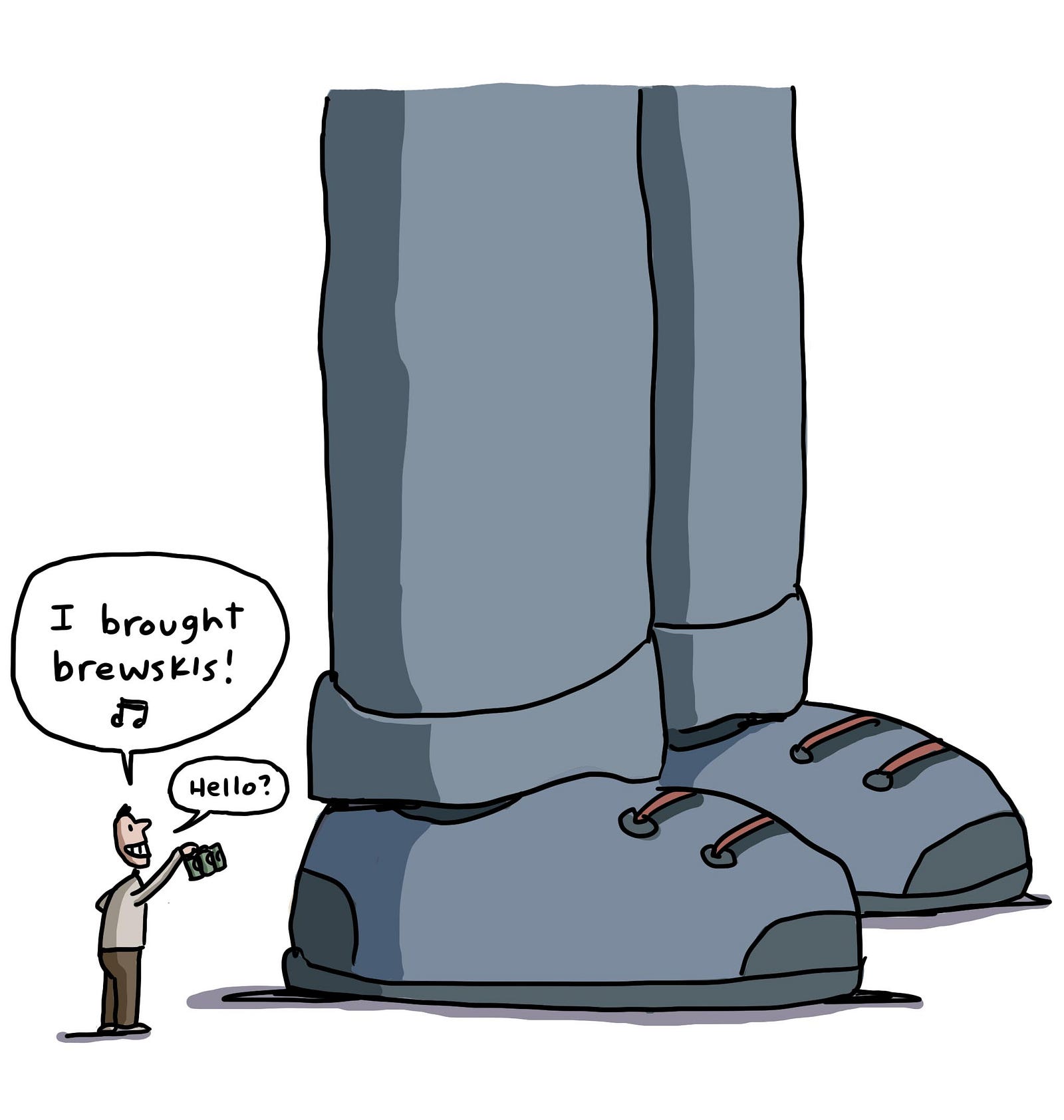
But our doubts are unfounded. We have been optimized by natural selection to live in small tribes of very familiar people. When you only know 50 or 100 people in your whole life, it is easy to feel seen, known, and necessary. Long before tables were invented, our prehistoric ancestors knew exactly what each person brought to them.
But in today’s mega-populations of anonymous strangers, it’s nearly impossible to get the feedback we need that tells us that we are valued and important–and not about to be cast out to the sabertooth tigers. This lack of assurance triggers evolutionarily appropriate alarms telling us to question our behavior and to do more to secure our place in the group. But most of us are already busting butt and working overtime. Or ceaselessly self-improving. Today, it’s almost always a false alarm that we can never shut off.
In other words, the problem isn’t that there is something wrong with us. Phew! When we look for reflections of our special qualities and uniquely important contributions and all we see are people on their phones or bosses who don’t even know our names, it’s not our fault. It’s because humans have displaced themselves from their own natural habitat. We’re already mostly okay the way we are just like the ugly duckling, Stuart Smalley, and the tagline on those saccharine posters. We don’t need to bend and twist–and get elective neck reduction surgery–to turn ourselves into ducks.
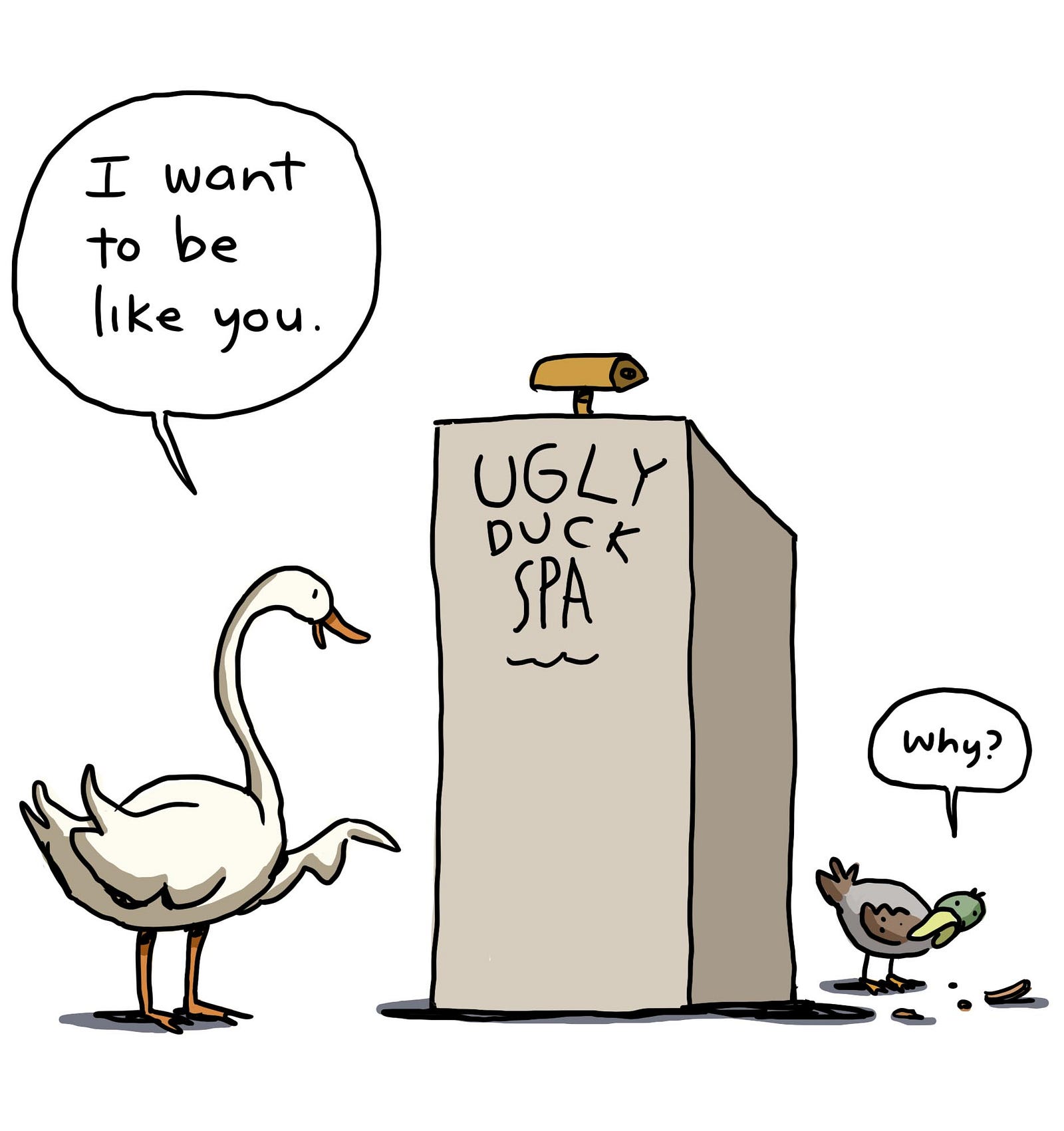
It’s a hard lesson to learn. My evolutionary impulse is to work harder to remake myself so I can be more betterer and find my rightful and revered place in the tribe. But I can see that this isn’t going to work.
The best I can do is to accept this mismatch between our hunter-gatherer biology and our modern environment. And then remind myself daily that there is no magical silk wrap, pandemic break, or retreat that is going to let me reemerge as the person I know myself to be. I’m already them.
